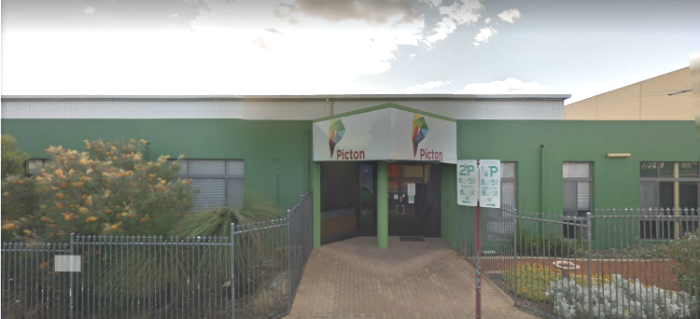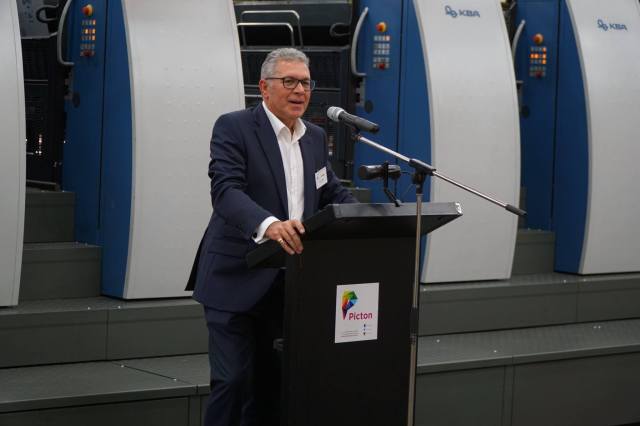
Picton Press managing director Gary Kennedy is hopeful that legal action by the Australian Taxation Office to overturn a Deed of Company Arrangement (DOCA) that has allowed his troubled company to continue to operate will fail.
The ATO launched another Federal Court action against the directors of the WA printer on December 21 after creditors voted in favour of a DOCA on November 8 that contained a plan to keep the company’s 30 staff employed and repay a tiny portion of its $9m debts.
Picton entered voluntary administration in May 2018 after the ATO launched initial action to recoup $1.3m in unpaid tax.
At the time $6.8m was owed to secured creditors, made up of a number of banks, with $3.5m due to unsecured creditors and $660,000 in outstanding staff entitlements, including redundancy pay and superannuation.
Jeremy Nipps of Cor Cordis handled the voluntary administration and prepared the terms of the DOCA.
Under the DOCA unsecured trade creditors owed less than $10,000 would receive full repayment, while those exceeding $10,000, including the Australian Taxation Office and a key paper supplier, would get just one to two cents in each dollar.
The agreement was that Picton would pay $205,000 to an unsecured creditors account managed by Nipps four weeks after the vote, with a further $275,000 due on November 28, 2019, which Nipps confirmed has been done.
Under the Corporations Act once these payments have been made all remaining debts are extinguished.
Kennedy told ProPrint that the latest legal action came as a major blow but also risks delaying the distribution of these funds to unsecured trade creditors.
“There is definitely a legal right (to challenge a DOCA) and you know that possibility is there. After any DOCA any creditor can choose to do this but you hope it is not going to happen and then it does,” Kennedy told ProPrint.
“We are hopeful that it will work out, we are trading and staff are getting paid, suppliers are getting paid.
“We would just like to resume normal transmission but we are not quite at that point and certainly the uncertainty of a challenge of the DOCA … it will be a sad thing if creditors do not get paid when the money is sitting there and the staff do not have jobs.”
Kennedy squashed any notion that this is a phoenix case, with Nipps saying the arrangements in place through the DOCA are compliant with the law, despite all remaining debts set to be cleared once the dividends have been paid.
“It is not a phoenix. It is not an asset shift. It is not like we have left everything behind and started somewhere else. We have gone through a legal process and now we are working through the process,” Kennedy said.
“We have paid in what will allow staff and creditors to get paid. People are still paying their mortgages, we are trying to do the right thing.”
He expressed his gratitude to suppliers and clients that have continued to deal with Picton.
“We have always had a pretty good relationship with suppliers and we are definitely under pressure from others trying to disrupt our supply which makes it hard but we are grateful for the friends that we have,” he said.
“We have had some clients that have been quite extraordinary really and that gives you the faith in human nature. Some of them have been very kind and we have done our best to keep them informed of where we are at.”
A cash flow crisis sparked Picton’s problems after it invested in a high speed 10 colour perfector in 2014 as the West Australian resource boom ended and demand for print diminished.
“So suddenly the capital commitments of the repayments on the press and the sales volumes could not support that capital. It just got harder and harder,” Kennedy said.
“The irony is it (the press) is nearly paid off but that’s basically what happened.”
Nipps has also denied reports that he managed the vote to get the DOCA through, telling ProPrint it was approved by 39 unsecured trade creditors who were not actually in the room and submitted their vote by proxy, with eight creditors against and all 30 staff in favour.
He acknowledges that the money offered in the DOCA is nominal but says it was the best result for staff and unsecured trade creditors as having the company close completely would mean there wouldn’t be a cent for anyone.
He said once the dividends are paid under the terms of the DOCA, the remaining debts will be cleared.
Understandably this is frustrating for creditors and other businesses trying to trade in a fair environment, but Nipps says the case is not a phoenix.
“Once the DOCA has been completed or effectuated those debts are extinguished. This is a mechanism under the Corporations Act that allows to legally have debts forgiven so creditors will receive their dividend return and that dividend return is actually full and final payment of the debt,” Nipps said.
“This is not a unique case. It happens quite often under the DOCA and voluntary administration process especially when there’s a limited pool of funds available but there’s still a viable business proposition.
“In liquidation scenarios unsecured creditors, trade creditors and the like, don’t get a return but under the DOCA, although the return is nominal, there is an actual return to creditors including unsecured creditors and employees.
Comment below to have your say on this story.
If you have a news story or tip-off, get in touch at editorial@sprinter.com.au.
Sign up to the Sprinter newsletter


